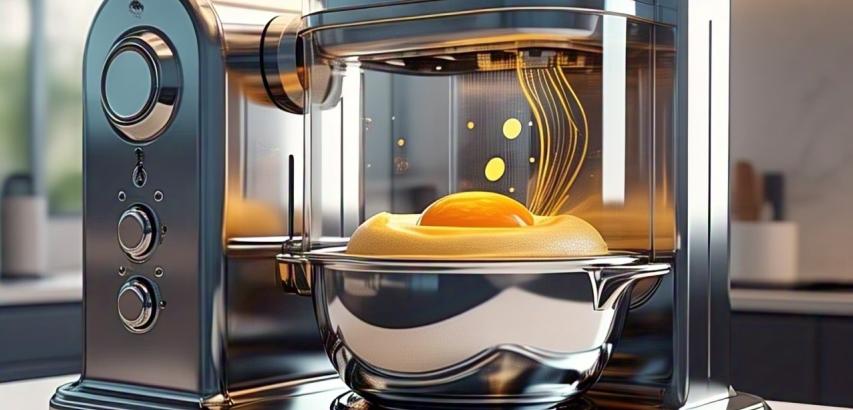An omelette making machine is an automated appliance designed to simplify and standardize the process of cooking omelettes, ensuring consistency, speed, and convenience. Ideal for busy kitchens, hotels, cafeterias, and home cooks, these machines cater to high-volume production or hassle-free meal prep, delivering perfectly cooked omelettes with minimal effort.
Key Features and Technology
Programmable Settings:
Adjust cooking time, temperature, and ingredient quantities for custom omelettes (e.g., fluffy, folded, or stuffed).
Non-Stick Cooking Surfaces:
Easy-to-clean plates or molds that prevent sticking and ensure even heat distribution.
Ingredient Dispensers:
Automated systems add fillings like cheese, vegetables, or meats at precise intervals.
Multi-Zone Cooking:
Simultaneously cook multiple omelettes or different styles (e.g., French, American).
Smart Controls:
Touchscreen interfaces with preset recipes or app connectivity for remote operation.
Rapid Cooking:
Cooks omelettes in 2–5 minutes, depending on thickness and fillings.
Safety Features:
Auto-shutoff, overheating protection, and cool-touch exteriors.
Types of Omelette Machines
Industrial Models:
High-capacity machines for hotels or catering services, producing 50–100+ omelettes/hour.
Commercial Countertop Units:
Compact designs for diners, breakfast cafes, or food trucks.
Home-Use Machines:
Smaller, user-friendly devices with portion control for families (e.g., 1–4 omelettes per batch).
Multi-Functional Cookers:
Combine omelette-making with grilling, boiling, or steaming.
Applications
Hospitality Industry: Streamline breakfast service in hotels and resorts.
Fast Food Chains: Ensure uniformity in omelette-based menu items (e.g., breakfast sandwiches).
Meal Prep Services: Bulk cooking for frozen or pre-packaged meals.
Home Kitchens: Simplify morning routines for busy households.
Advantages
Consistency: Uniform texture and doneness every time.
Time Efficiency: Reduces manual labor and multitasking in the kitchen.
Customization: Tailor omelettes to dietary needs (e.g., vegan, gluten-free).
Hygiene: Closed systems minimize cross-contamination.
Space-Saving: Compact designs fit small kitchens or food trucks.
Considerations
Cost: Industrial machines range from $1,000–$10,000+; home models cost $50–$300.
Maintenance: Regular cleaning of non-stick surfaces and dispensers is critical.
Ingredient Prep: Vegetables or meats may need pre-chopping for dispensers.
Power Requirements: High-wattage models may need dedicated circuits.
Learning Curve: Some machines require calibration for optimal results.
Popular Models and Brands
Cuisinart Breakfast Central: Multi-functional machine for omelettes, pancakes, and more.
Star Manufacturing Omelette Maker: Commercial-grade unit for high-volume kitchens.
Hamilton Beach Breakfast Station: Affordable home model with dual cooking zones.
Middleby Cooking Systems: Industrial equipment for large-scale food service.
Innovations and Trends
AI Integration: Smart algorithms adjust cooking based on ingredient moisture or density.
Eco-Friendly Designs: Energy-efficient heating elements and recyclable materials.
Voice Control: Compatible with Alexa or Google Assistant for hands-free operation.
3D-Printed Omelettes: Experimental machines creating decorative or layered omelettes.
The omelette making machine is a game-changer for both professional and home kitchens, blending culinary precision with modern automation. While traditionalists may argue for the charm of handcrafted omelettes, these machines excel in environments demanding speed, scalability, and standardization. As technology advances, expect smarter, greener, and more versatile models to dominate the market, making perfectly cooked omelettes accessible to everyone—from Michelin-star chefs to hurried parents. Whether you’re serving hundreds or just one, investing in an omelette machine ensures breakfast is always served hot, delicious, and stress-free. 🍳✨
 |  |  |
